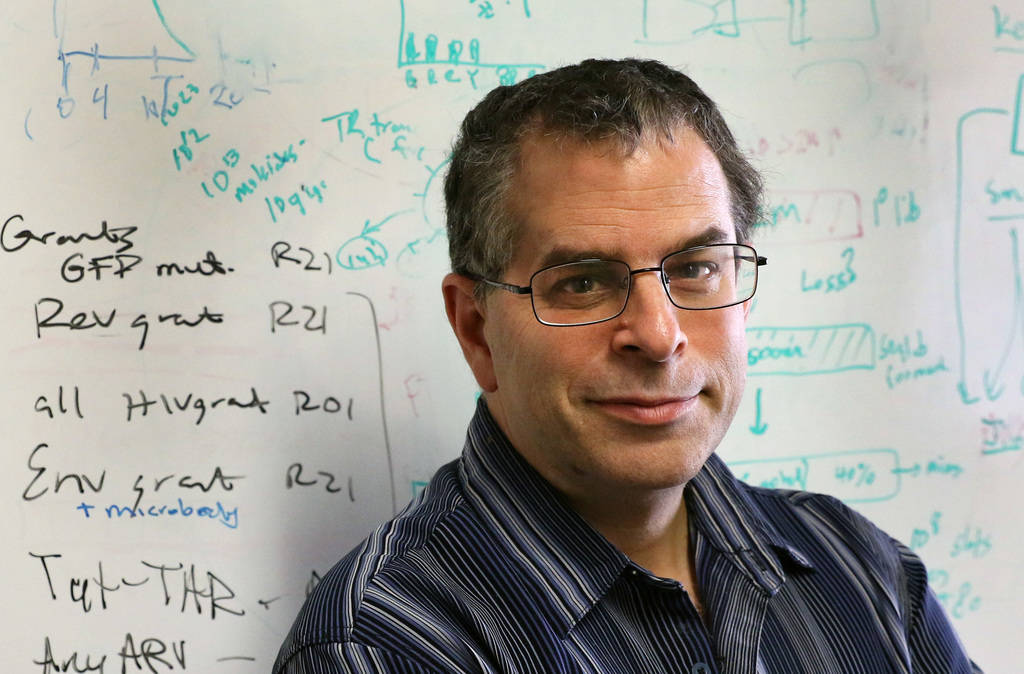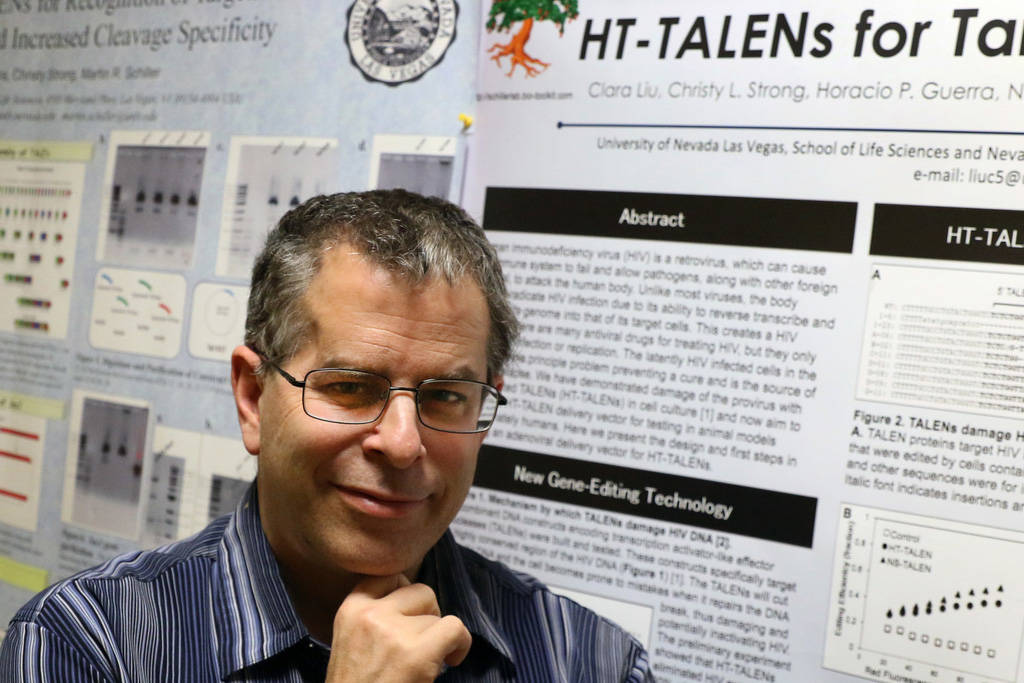Las Vegas researcher promotes healthier eating via genetic data


Your genes may hold clues to your optimal diet plan.
That’s what UNLV researcher Martin Schiller advocates with his new business, Food Genes and Me, a website that uses genetic data to predict how eating less or more of a certain food could help ward off disease.
“I do research for the benefit of mankind,” said Schiller, who heads up the Nevada Institute of Personalized Medicine and created the business out of a project at UNLV. “I thought this was something we could do and get out there and end up helping quite a bit of people.”
Research pointing to the accuracy of these types of recommendations is still in its infancy, experts say, but the application itself is easy to use. All you need is your DNA data set from a previous test, like an ancestry kit. Then, upload it in to the website and create a personal profile.
Using a computer algorithm, the company’s server analyzes the genetic code to search for mutations that might be linked to predisposition to a disease.
Once that’s determined, the application spits out dietary recommendations based on research vetted by Schiller and his team, and voila: your personalized dietary guidelines await.
“We believe the next wave of having a huge impact on health outcomes … will come from screening and preventative approaches,” Schiller said. “Since you’re eating food three times a day, that’s a great place to start with prevention.”
The idea is based on nutritional genomics, said Kaixiong Ye, a researcher at the University of Georgia who studies the topic. The website is one of a few new tools that combine personalized medicine with food.
“Each one of us has our own genetic background,” Ye said. “The idea is we get DNA from individuals and know how genetic differences influence the metabolism of nutrients.”
There’s some research available from the past 20 years that links a change of diet to suppressing the clinical effects of a genetic mutation, but the evidence is limited, Ye said.
Also, translating a genetic predisposition to a dietary change is tricky.
“Our dietary requirement is actually influenced by many factors,” he said. Genetics are only one of those factors.
Environment is another.
“Diet is something you want to customize,” he said, based on metrics such as physical activity, life stage, gender and age.
For that reason, and because the research is still limited, Ye said, he recommends that people submitting their data for recommendations take the output with a grain of salt.
“I personally believe this is going to be the future,” he said. “But I would say for a consumer, don’t take the information too seriously at the moment.”
Still, the research is moving quickly, said Susan Persky with the National Human Genome Research Institute.
“I think we’re in a place now where we’re on the cusp of something,” Persky said.
Even if there’s little personal benefit, participating could help advance research. With 5,000 to 10,000 participants, Schiller said, the results could be reproducible.
The website is currently in the beta-testing phase. Schiller said he hopes his site eases access to personal nutritional guidance.
“The easier it is for someone to do something, the less barriers, the more people are likely to do it,” he said. “The power of science becomes huge.”
Contact Jessie Bekker at jbekker@reviewjournal.com or 702-380-4563. Follow @jessiebekks on Twitter.
Consider data security
Food Genes and Me has a firewall, but will consider storing DNA data on a computer not connected to the internet server in the future, Schiller said.
Still, Persky recommends exercising caution when uploading your data anywhere online.
“It’s important to know what you’re getting into,” she said. “Once it’s out there, you can’t take it back.”













